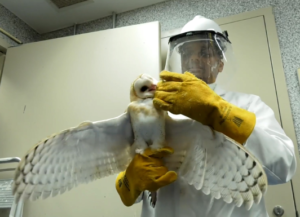Podcast: Play in new window | Download
Highlighting PETA Cases And Inherent Animal Protections
Each year, December 10 marks International Animal Rights Day to draw attention to the prevalent use and abuse of non-human animals. That’s the same day that Human Rights Day is observed, marking the day the United Nations General Assembly adopted, in 1948, the Universal Declaration of Human Rights.
Non-human animals are sentient. That means they have a capacity to experience feelings, and to be responsive to or conscious of sense impressions. Sentient beings experience emotions such as happiness, joy, and gratitude, as well as pain, suffering, and grief. Animal rights or animal welfare activists urge society to stop thinking of animals as human property and as companions rather than pets. They urge abstention from all animal use, including meat, leather, milk, wool and silk, while also calling for an end to experimentation on animals. Other efforts include seeking an end to using animals for laboratory experimentation and for sporting events and entertainment.
Scientists at People for the Ethical Treatment of Animals, or PETA, have written an authoritative report from dozens of studies, some funded by the National Institutes of Health, that show sentience across the animal kingdom. It compiles evidence from dozens of studies—some funded by the federal National Institutes of Health—that show sentience across the animal kingdom. The report concludes that because other animals experience emotions as humans do, it is unethical to subject them to the trauma and emotional distress of experimentation.
Guest – Asher Smith is Director of Litigation at the PETA Foundation. He has helped secure the rescue of 25 big cats from roadside zoos featured in the Netflix series Tiger King. More recently he has focused on freeing 30 barn owls from a laboratory at Johns Hopkins University.
Guest – Attorney Tamara Bedic, chairperson of the National Lawyers Guild Animal Rights Project. She is a graduate of the University of Virginia School of Law and a masters degree from Columbia University-NY University. Tamara practices employment law with a focus on women and harassment in the workplace.
—-
More PETA Cases, Speciesism and Long Range Animal Protection
With more than 9 million members and supporters worldwide, People for the Ethical Treatment of Animals (PETA) is the largest animal rights organization in the world. It opposes speciesism, the human-held belief that all other animal species are inferior. PETA’s work encompasses four areas in which animals have been suffering the most intensely and over the longest periods of time. They are in research laboratories, the food industry, the clothing trade, and the entertainment business. PETA conducts public education, investigative news gathering and reporting, research, animal rescue, legislation, and protest campaigns.
Guest – Jared Goodman, PETA Foundation Vice President and Deputy General Counsel for Animal Law. He describes what speciesism is and how it has informed PETA’s work since its founding in 1980.
————————————————–




